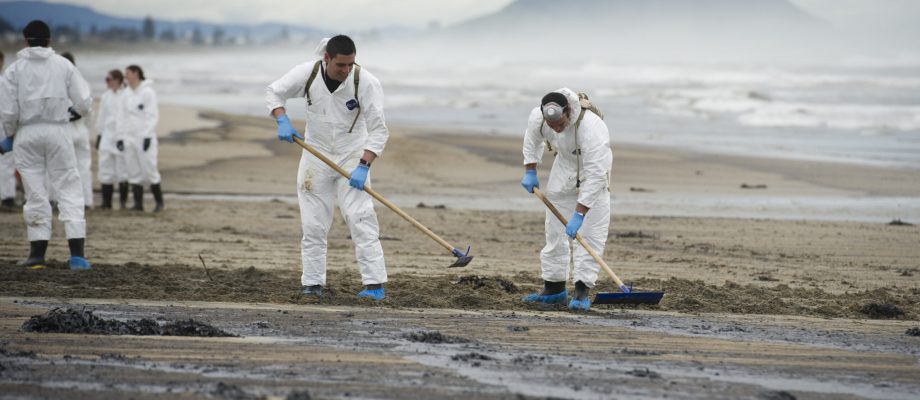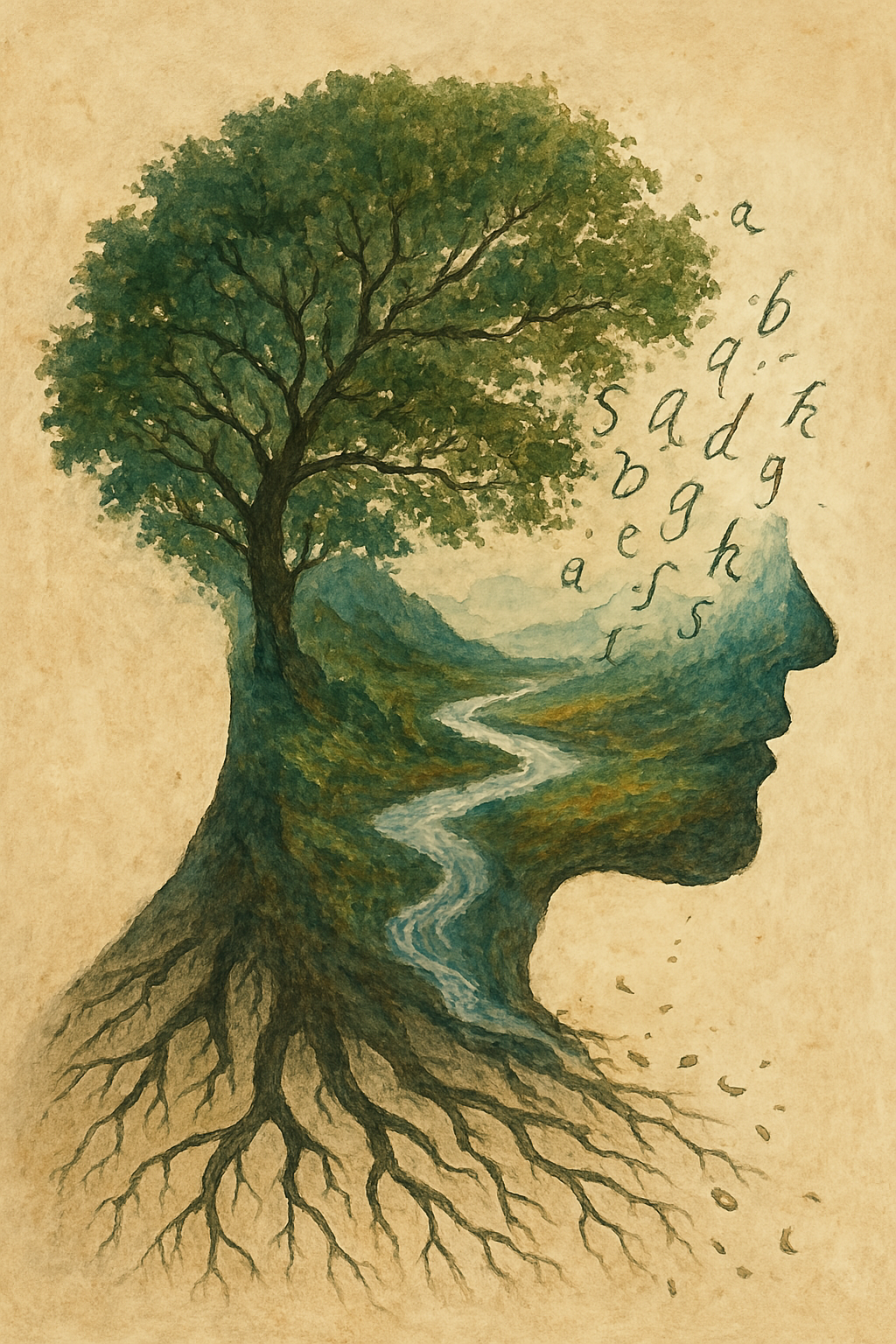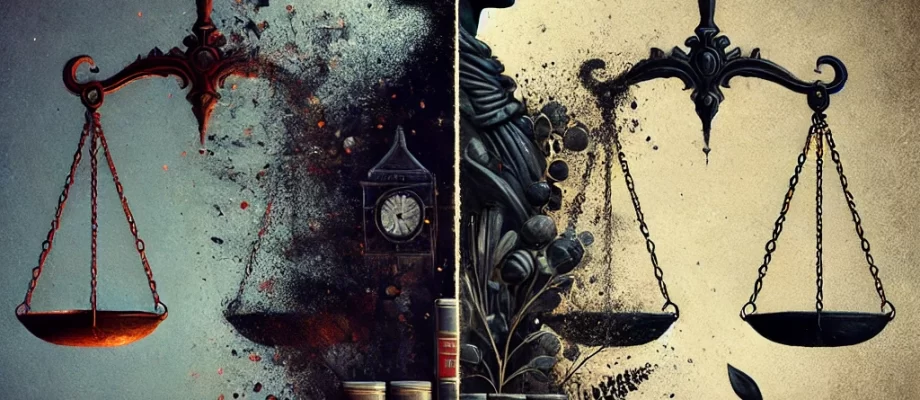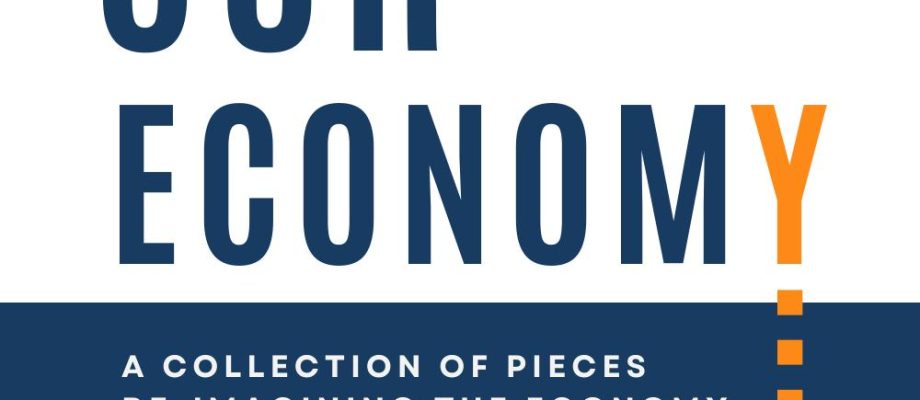By Waltraud Pospischil
With on-going environmental destruction around the world and insufficient action being done to tackle climate change, the question arises: why is humanity seemingly bent on making the planet uninhabitable?
Being a rational species, with most of those with power aware of the situation and scientifically informed, what needs to be done to stop and reverse the process of our own extinction?
Firstly, humanity is fragmented. Some (a growing minority) go out in the streets – protesting, disrupting and putting themselves at risk. Others just feel powerless, perhaps overcome with personal problems and not seeing any immediate danger. At the same time, many of those with power see climate action as posing a higher risk to their comfort and luxuries rather than climate change, with an associated belief that they will cocooned from the worse impacts – or any impacts at all – because of their wealth.
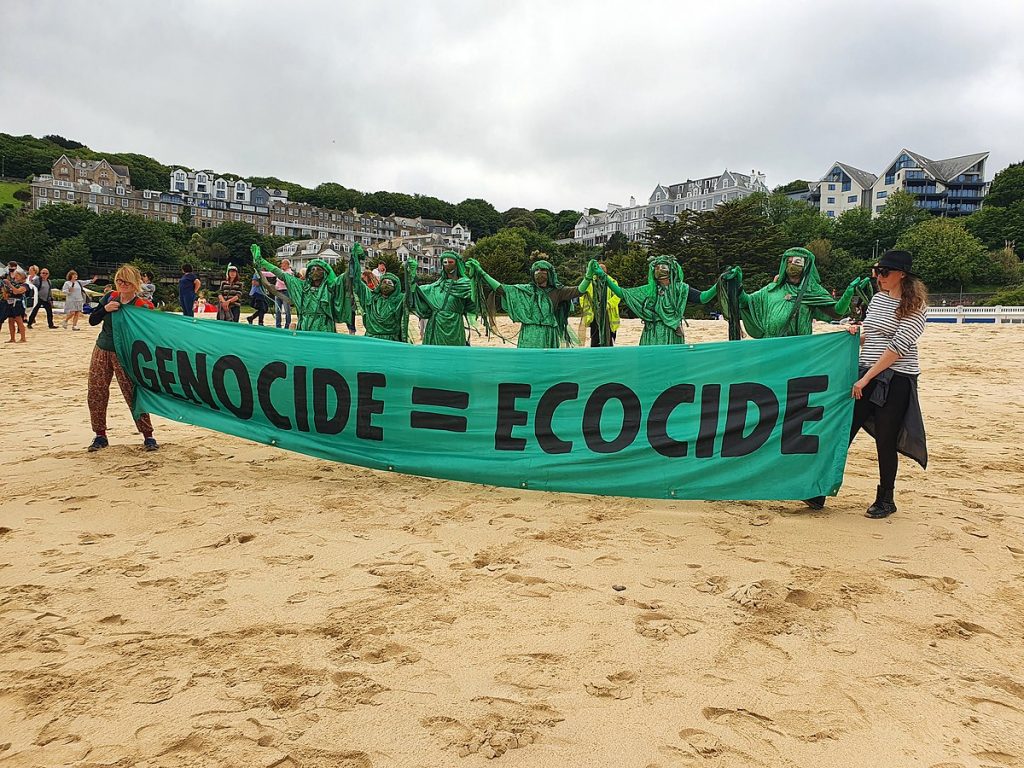
Secondly, what we are witnessing today is part of a deeply embedded historical process. The causes are now so strongly connected to our socio-economic system that it requires a fundamental shift, rather than some tweaks to policies and taxes. Against this background, we might consider what Noam Chomsky said:
“I don’t know what word in the English language – I can’t find one – applies to people who are willing to sacrifice the literal existence of organized human life so they can put a few more dollars into highly stuffed pockets. The word ‘evil’ doesn’t even begin to approach it.” (Democracy Now!, 2018)
‘Evil’ is a pretty strong term, and often seen as subjective. It is defined as ‘profound immorality and wickedness’ (Lexico, 2022) usually connected to supernatural sources. Naming and identifying the root of a gross rational malfunction, which could destroy us all, is surely in close parallel to this definition.
In this article, we are putting humanity’s drives, instincts and inclinations on the couch – because, despite all appearances of artificiality, it is from these that ecocide has arisen. As a kind of psychoanalysis, we can give first consideration to Sigmund Freud’s notion of a ‘death drive’, or ’Todestrieb’, which he described as ‘the drive towards death and destruction’ (Freud, 1920). As noted by Professor Dany Nobus:
“The key paradox pervading Freud’s essay is not that there is a death drive which operates beyond the pleasure principle, but that it is the libidinal investment of the ego, in the form of narcissism, which drives the human life form towards its own extinction.” (2021)
Nobus goes on to observe that: “the more a living organism is narcissistically invested in protecting its own existence, the more it is at risk of unwittingly facilitating and expediting its annihilation, because auto-sexual investment does not contribute to solid community building, creative cross-fertilisation and progressive revitalisation.” (Nobus, 2021)
This would imply that the phenomenon of ecocide is born from, and fuelled by, narcissist impulses, which in turn are created by the socio-economic system we live within. We can see this through how modern capitalism creates a throwaway consumerist culture, driven by satisfying personal ‘needs’ that are linked to manufactured self-image, competition with one’s fellows and inflation of ego. For Freud, the solution is to open up to others and the world, exchanging destructive ego interests for love, as surmised in his assertion that “whoever loves becomes humble. Those who love have, so to speak, pawned a part of their narcissism” (Freud, 1914, p. 98). Large scale analogues for this can be found in the climate action movement, where the value of community as a source of resilience and adaptation has been recognised by actors as central as the United Nations (Global Climate Action, 2020).
This idea, of processes internal to our own psychology being played out on a wider scale in our socio-economic system, can be seen in our relationship to the Earth as a nurturing source of life. It can be argued that there is a conscious and subconscious symbolic connection between the mother and Earth. It is certainly no coincidence that in languages where ‘objects’ have a gender definite article, nature and the planet are assigned feminine gender: die Erde, die Welt, la terre, la planète Terre, la terra, la Tierra, mãe terra… and so on. Greek mythology characterised our planet as the female ‘Gaia’, and this practice has permeated into modern English in the phrase ‘mother nature’.

Intuitively, this would lead one to assume that the deep-rooted practice of conflating ‘earth’ and ‘motherhood’ would lead to greater respect in our dealings with the planet due to its life-giving function. Melanie Klein, however, posits in her theory of object relation that this very dependence induces a violent “inborn polarity” of the emotions in an infant towards their mother (Segal, 1964, p. 12); that every instance of satiation, hunger, comfort or aggravation brings about an exaggerated emotional response of either bliss or aggression.
It is in light of the paranoid-schizoid phase, innate from when we are born and try to survive in an unpredictable world we don’t understand, that Klein wrote:
“The repeated attempts that have been made to improve humanity – in particular to make it more peaceable – have failed, because nobody has understood the full depth and vigour of the instincts of aggression innate in each individual…. that hostile attitude, springing from fear and suspicion, which is latent more or less strongly in each human being, and which intensifies a hundredfold in him every impulse of destruction.” (Klein, 1975, p. 257)
Insights into epistemology, the philosophy and theory of knowledge, may also bear fruit when trying to understand the causes of ecocide. Ernst Cassirer posited that man is an ‘animal symbolicum’ (as opposed to Aristotle’s ‘animal rationale’), arguing that as a species we make sense of the world through symbols and simulacrum (representations of objects) rather than rational thought, and as such our perceptions of reality are fundamentally altered by subjective concepts of relation and function (Cassirer & Lofts, 2020).
Unfortunately, we still believe that we are rational even when facing ecocide, by following the French scholar René Descartes’ theory of dualism, or the separation of man and nature. This was the logical conclusion of his rationalism, in which the seemingly unstoppable advancement of Western science and society justified a reforming of our relationship to the natural world, from all-encompassing and life-giving, to just another resource that could be harnessed for human development. As Francis Bacon noted at a similar time across the English Channel, ‘nature had to be hounded and made a slave to the new mechanized devices; science had to torture nature’s secrets out of her’ (Capra, 1982). In terms of symbolism, nature had moved from a life-giver of man, to its captive.

Jung, who coined the term ‘collective unconscious’[1], explored this social-psychological imbalance through his concepts of ‘anima’ and ‘animus’ as representations of feminine and masculine sides in both males and females, which was influenced by his studies of Taoism – with its focus on ‘Yin’ and ‘Yang’ – along with other Eastern philosophies (Jung, 2016). In these, an imbalance in one side is seen as a cause for illness, suffering or general destruction. We can see this, perhaps, in how the ‘animus’ or masculine side of human nature, has come to dominate society, causing an emphasis on competition, together with exploitation of both people and the environment.
Feminism is divided in different groups but is overall an expression of bringing back a balance between Yin and Yang, or animus and anima, with the belief that women can and should play an equal role to men in society. Ecofeminism in particular stresses that man’s control of land was responsible for the oppression of women and the destruction of the natural environment. It advocates that women are more caring, naturally in tune with the earth and with greater ecological awareness. Jung’s anima would represent the caring personality in both men and women.
Science, already male-dominated, has embarked on a campaign to control and exploit nature. Our planet Earth, always being a historically symbolic feminine character, was reduced to an object whose sustenance had to be taken by force. Later, the industrial revolution rendered the cognitive separation between humanity and the rest of the world even more concrete. Former traditions around farming, crafts, arts, music, storytelling and celebrations were literally smothered beneath the fumes of factories and mass production.
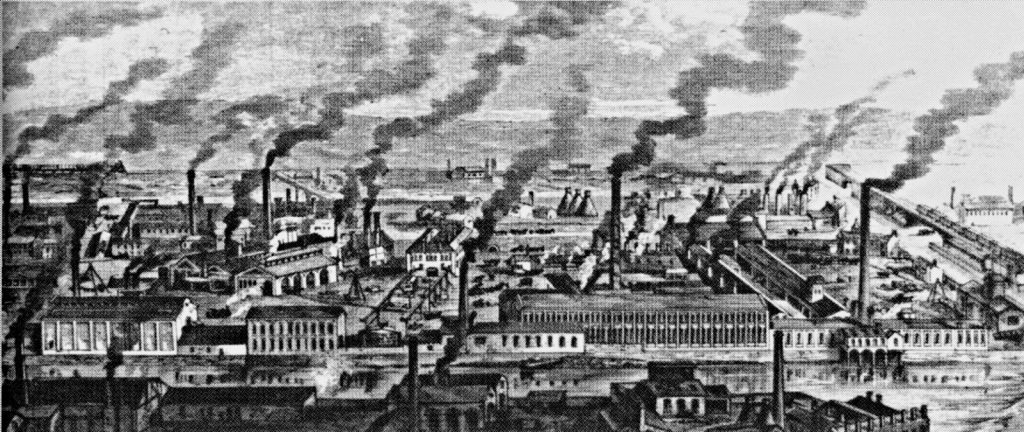
My discussions have brought up theories explaining ecocide as result of human psychology, our history of symbolic perceptions and the collective unconscious. Yet it is now worth asking how these theories can be brought together to bring about positive action, to halt our march towards extinction. After all, despite coming from different places and times, there are currents of confluence between these differing schools of thought. For example, Jung would believe a person in tune with his/her unconscious would not act destructively, and most religions also preach that people should care for the world God created.
In the 80s, as a student coming from Austria, it seemed to me that everyone was speaking about Fritjof Capra (an Austrian born system-theorist) and his book ‘The Turning Point’. It promised that we were about to enter the ‘Aquarian Age’, when enlightened knowledge, experience and actions would change our society for the better. Now, 40 years later, we are closer to extinction through our own destructiveness than ever before.
The film ‘Mindwalk’, released in 1990, is directed by Fritjof’s brother and based on the ‘Turning Point’ book’s ideas. Conversations between a hopeful US politician, a poet friend, and a female scientist from Sweden discuss topics like the catastrophic effects from scientific discoveries and imbalances of power. The mood is bleak, while poetic; the message is that we need enlightened politicians who initiate, promote, and make the changes.
“Scientists, therefore, are responsible for their research, not only intellectually but also morally. This responsibility has become an important issue in many of today’s sciences, but especially so in physics, in which the results of quantum mechanics and relativity theory have opened up two very different paths for physicists to pursue. They may lead us – to put it in extreme terms – to the Buddha or to the Bomb, and it is up to each of us to decide which path to take.” (Capra, 1982, p. 87)
Today, we are suffering the effects. From the enforced taking of nature’s bounty, we have seen an over-saturation by which greed and carelessness is expressed through fast food, addictions, unhealthy lifestyles, and unchecked consumerism. The benefits of all this, the monetary profits, go to serve those who learned how to become rich as powerful, often linked to historical systems of colonialism and modern day slavery. It is exactly these same systems that have created, and continue to reinforce, exploitation and suffering for the majority of the world’s population.
Capra links up with the psychoanalytical theories discussed above, recommending a holistic and ‘systems-theory’[2] approach. He issues a challenge to our society by proposing that it is in the interests of modern science that balance with the natural world can be restored. Indeed, I believe that change is possible by putting together all the parts, recognising that the Earth and our society within it is a complex system, and that an equally ambitious theory is needed to remedy its unsustainability.
Considering humanity’s current ecocidal tendency and the socio-economic system that essentially holds us captive to this destruction is as much a matter of psychology as politics. We can consider the work of each psychologist mentioned in this blog as representing a potential source of treatment, each offering a unique pathway towards healing of ourselves and the planet:-
- Freud: By becoming conscious of our instincts, drives and hidden motives – especially narcissism and the death drive – we will be able to recognise these when they arise.
- Klein: Once we can accept that ‘mother nature’ is not perfect in providing gratification to everything we want, and start feeling guilty for causing damage to her, we will start to care and move away from ‘enforced taking’.
- Cassirer: We need to realise that we evolve from a history of connecting and understanding through symbolic perceptions. After researching and identifying where we are misled, everyone has a responsibility to improve our world to the highest possible “good”.
- Jung: Everything is interconnected and interrelated through the pool of our collective unconscious. Egocentric people contributing to ecocide lost the balance between animus and anima. The remedy: we take a ‘one world’ approach and proactively engage in rebalancing and healing ourselves and society.
- ‘Collective’ Cognitive Behaviour Therapy: Change can’t be made overnight, but by putting a lasting emphasis on replacing false needs and gratifications, which only cause more pain to us and destruction to our world, we can identify what really matters.
- Capra, Holistic Approach and Systems Theory: Change is possible by putting all parts together, after acknowledging we are not as rational as we believe and can get corrupted easily. Thereafter we are able take morally responsible, informed, inclusive actions through platforms encompassing our whole world.
Terminology footnotes
[1] Collective unconscious: an area of the unconscious mind that all members of a society share, such as instincts and religions.
[2] Systems approach: the interdisciplinary study of systems, i.e. cohesive groups of interrelated, interdependent parts that can be natural or human-made.
References
Bacon, F., 1620. The New Organon: or True Directions Concerning the Interpretation of Nature. London: s.n.
Baines, M., 2011. ‘Death Drive’: A Literature-based Heuristic Study of the Influence of the Freudian Death Drive on 21st Century Counselling and Psychotherapy Literature (MA Thesis), Chester: University of Chester.
Capra, F., 1982. The Turning Point: Science, Society and the Rising Culture. 1st ed. London: Simon and Schuster.
Cassirer, E. & Lofts, S. G., 2020. The Philosophy of Symbolic Forms, Volume 1. London: Routledge.
Democracy Now!, 2018. Noam Chomsky: The Future of Organized Human Life Is At Risk Thanks to GOP’s Climate Change Denial. [Online]
Available at: https://www.democracynow.org/2018/11/5/noam_chomsky_the_future_of_organized
[Accessed 14 March 2022].
Freud, S., 1914. On Narcissism: An Introduction. In: J. Strachy, J. Freud & A. Freud, eds. The Standard Edition of the Complete Psychological Works of Sigmund Freud, Volume XIV (1914-1916): On the History of the Psycho-Analytic Movement, Papers on Metapsychology and Other Works. s.l.:Hogarth Press, pp. 67-102.
Freud, S., 1920. Beyond the Pleasure Principle. 2nd English Translation ed. Vienna: The International Psycho-Analytical Press.
Jung, C., 1968. The Archetypes and the Collective Unconscious. 2nd ed. London: Routledge.
Jung, C., 2016. Psychology of the Unconscious. London: Martino Fine Books.
Klein, M., 1975. Love, Guilt and Reparation and other Works 1921-1945. 1st ed. New City: Macmillan Inc.
Lexico, 2022. Meaning of “evil” in English. [Online]
Available at: https://www.lexico.com/definition/evil
[Accessed 14 March 2022].
Nietzsche, F., 2002. Beyond Good and Evill: An Introduction to a Philosophy of the Future. 2nd ed. New York: Cambridge University Press.
Nobus, D., 2021. Narcissism and the Pleasures of Extinction: For the Centenary of ‘Beyond the Pleasure Principle’. [Online]
Available at: https://www.journal-psychoanalysis.eu/narcissism-and-the-pleasures-of-extinction-for-the-centenary-of-beyond-the-pleasure-principle/
[Accessed 14 March 2022].
Segal, H., 1964. Introduction to the Work of Melanie Klein. 1st ed. London: Routledge.
Winnicott, D., 2016. The Collected Works of D. W. Winnicott: Volume 3, 1946-1951. Oxford: Oxford University Press.
Jung, C., 1964. Civilisation in Transition. In: R. Hull, ed. The Collected Works of Carl Yung Volume 10. London: Princeton University Press, pp. 1-694.

